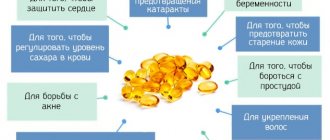How does the drug affect the body?
The use of such a serious medication requires the question: how does Miropriston work?
The drug works thanks to a substance called mifepristone.
The tablets act on the fertilized egg, forcing it to leave the uterus at a short stage of pregnancy, and at a later stage helps to stimulate labor.
Miropriston combines with plasma proteins by 98%.
During the first dose, the tablets are eliminated from the body for a fairly long period of time - from 12 to 72 hours.
After this time, the female body cleanses itself much faster, which is influenced by the patient’s personal characteristics.
Opinions
Most of the doctors' reviews about Miropriston for inducing labor are positive. Women talk about the increased effectiveness of the drug both in early pharmaceutical abortion and in inducing labor.
But there are also individual responses in which representatives of the fair half share their negative experiences of using this drug. As a rule, we are talking about interrupting an “interesting situation.”
According to reviews of “Miropriston” for inducing labor, it is known that women indicate either pronounced negative effects of the drug or a complete lack of effect, which entailed the need for vacuum aspiration.
What are the features of taking the drug?
Miropriston is used by specialists in clinics to induce labor because the drug is unsafe for self-administration.
The abortion procedure using Miropriston tablets is also carried out only in clinics and other medical institutions. Dosage 600 mg. (3 tab.) once .
Under constant medical supervision, the tablets are taken orally 1-1.5 hours after a meal (light breakfast), washed down with 100 ml of boiled water. After 36-48 hours have passed, the patient comes to the clinic to take 400 mcg of misoprostol. After some time, it begins to act, so the specialist continuously monitors the woman for two hours.
After 10-14 days, the woman is examined again and ultrasound monitoring is carried out; if necessary, the level of hCG is determined to make sure that the pregnancy is terminated.
If there is no result from the use of Miropriston on the 14th day (the abortion is not completed or the pregnancy is still ongoing), vacuum aspiration is performed with further histology of the resulting material.
Miropriston to induce labor is prescribed by specialists at a dose of 200 mg.
After 48-72 hours, the condition of the pathways involved in childbirth is assessed, and if necessary, prostaglandins or oxytocin are prescribed.
The tablets begin to work within 24 hours, although this occurs differently for each woman.
What other contraindications does the drug have?
Prohibitions on preparation and induction of labor are:
- Bloody vaginal discharge of unknown origin during pregnancy.
- Eclampsia is a disease that occurs during pregnancy, as well as childbirth and the postpartum period, in which blood pressure reaches such a level that the life of the mother is threatened.
- A difficult pregnancy that requires frequent monitoring and therapy in a hospital setting.
- A complication of a normal pregnancy, which may not manifest itself or may be manifested by edema, increased blood pressure, loss of protein in the urine, and convulsions.
- Abnormal position of the fetus (a clinical situation in which the axis of the fetus forms a straight or acute angle with the longitudinal axis of the uterus, the presenting part is absent).
- Severe forms of hemolytic damage to the fetus.
View gallery
According to the annotation, the drug "Miropriston" should be used with extreme caution in the following situations:
- Heart diseases.
- Arterial hypertension (a disease characterized by high blood pressure).
- Bronchial asthma (damage to the respiratory system, which is characterized by attacks of suffocation of varying duration and frequency).
- Obstructive pulmonary disease (a disease characterized by partially irreversible restriction of air flow in the respiratory system).
View gallery
Are there any contraindications for the drug?
The use of Miropriston is not possible if:
- adrenal insufficiency;
- pathologies of the liver and kidneys in the acute and chronic phase;
- long-term treatment with glucocorticoids;
- porphyrin disease;
- anemia;
- blood clotting disorders;
- acute pathologies of the female genital organs of an inflammatory nature;
- severe extragenital diseases;
- benign tumor in the uterus;
- smoking abuse (if the patient is 35 years of age, a doctor’s consultation is not required);
- the probable pregnancy period is more than 42 days;
- ectopic pregnancy or if its likelihood is suspected;
- unconfirmed pregnancy;
- probable pregnancy resulting from the use of intrauterine contraceptives;
- gestosis with impaired blood circulation in the brain;
- severe gestosis;
- hypocalcemia;
- pelvis smaller than the baby's head;
- post-term or premature pregnancy;
- blood discharge from the vagina that appears for no reason;
- improper positioning of the fetus before birth;
- severe hemotolytic disease of the fetus;
- leakage of amniotic fluid before birth;
- probable pregnancy resulting from withdrawal of hormonal medications.
The prescription of tablets is carried out with extreme caution when:
- persistent increase in blood pressure;
- chronic inflammatory disease of the respiratory tract;
- chronic obstructive pulmonary diseases;
- cardiac disorders;
- diagnosed heart failure.
Restrictions
Contraindications:
- Uterine fibroids are a benign tumor that arises in the muscular layer of the uterus.
- Disorders of hemostasis (the biological system that maintains the normal fluid state of blood in the body).
- Acute or chronic diseases of the liver and kidneys.
- Adrenal insufficiency.
- Porphyria is a hereditary disorder of pigment metabolism with an increased content of porphyrins in the blood and tissues and with their increased excretion in urine and feces.
- Carrying out long-term glucocorticosteroid treatment.
- Smoking over 35 years of age.
- Increased sensitivity.
View gallery
Restrictions on medical abortion:
- More than 42 days of amenorrhea (no menstruation for 6 months in a woman who previously had a normal menstrual cycle).
- “Interesting situation”, not confirmed by clinical studies.
- Ectopic pregnancy.
View gallery
What side effects does the drug have?
Tablets may cause some side effects. Women who want to terminate a pregnancy with medication or who are already performing this procedure at home are worried about bleeding after using Miropriston. Bleeding is usually present, for some it is just spotting, and for others it is heavy bleeding. In addition, the fairer sex may experience pain in the lower abdomen. Inflammation may develop in the uterus itself and its appendages.
The pills do not have the best effect on the fetus. If an unsuccessful miscarriage occurs, after which the patient wishes to keep the fetus, then the baby may develop various pathologies.
Reviews from some patients say that taking pills can result in various side effects:
- urticaria;
- increased body temperature;
- dizziness;
- headache:
- general malaise;
- discomfort below the abdomen:
- nausea and vomiting.
Adverse reactions
"Miropriston" can provoke the following negative actions:
- Migraine.
- Hyperthermia is the accumulation of excess heat in the body with an increase in temperature, which is provoked by factors causing poor heat transfer.
- Nausea.
- Vomiting.
- Nettle rash.
Termination of pregnancy may be accompanied by pain in the lower abdomen and bleeding from the vagina. In addition, exacerbation of inflammation of the uterus and appendages is likely. Reviews of Miropriston tablets for inducing labor are usually positive.
View gallery
"Miropriston" is used not only to prevent unwanted pregnancy, but also to stimulate labor. Not always with a positive course, labor also begins and goes according to plan - sometimes you have to resort to drugs.
How long does it take for Miropriston to work to induce labor? The medicine must be used strictly as prescribed by the doctor and only in medical institutions that specialize in female reproductive medicine.
Labor is observed in the next 2-3 days after using the drug. On average, labor begins 60 hours after taking the second tablet.
According to reviews of “Miropriston” for inducing labor, a pregnant woman after taking the drug should be under medical supervision and report any changes in her condition. Already in the first hours after taking the first tablet, pain in the lower back is noted, and the release of the mucus plug can be noted.
All these unpleasant sensations, as a rule, gradually increase, clearly intensifying after the second tablet. If 2 days after taking the second tablet there is not even a hint of stimulation, another, stronger medication is prescribed.
View gallery
What analogues of the drug exist?
Miropriston is replaced with the following analogues:
- Agesta;
- Ginestril;
- Genale;
- Mifegin;
- Mifeprex;
- Mifepristone.
Consequences of taking the drug
Miropriston is used not only to stimulate labor and contractions, but also to terminate early pregnancy.
After taking the first and subsequent doses, a woman may experience the following side effects, which can take a lot of energy and endanger the life of the child at the pushing stage :
- Strong headache;
- intestinal upset, including vomiting, nausea and diarrhea;
- dizziness and decreased blood pressure;
- rapid heartbeat and slight difficulty breathing;
- general weakness throughout the body;
- bleeding before the birth process begins;
- increased body temperature along with other symptoms;
- fetal hypoxia at the pushing stage due to insufficient expansion.
The drug is dangerous when used alone and can cause significant harm to the body, including severe uncontrolled bleeding. That is why it is advisable to take even the minimum dose of the drug strictly within hospital walls.
In addition, you should not drink Miropriston if you have the following diseases :
- problems in the functioning of the adrenal glands and cancerous tumors in the uterus;
- the presence of chronic kidney disease, including in remission;
- anemia and severe weakness of the woman in labor;
- diseases in the genitourinary system ;
- incorrect position of the fetus, requiring the use of only an operative method;
- large size of the child's head , due to which the baby cannot pass through the mother's birth canal;
- problems in fetal development;
- late toxicosis, including the state of preeclampsia and eclampsia;
- early rupture of amniotic fluid, in this case it is better to use oxytacin or prescribe a cesarean section.
Mifepristone
I gave birth almost 2 years ago. Also at CSTI. I went to bed after the expected date of birth, there was an agreement with a good doctor. The due date has passed, but I have no readiness for childbirth, everything is tightly closed))) And they also gave me this mifepristone to drink to prepare the cervix! And they also said that it was an expensive drug, they were probably hinting at something)))) I finally didn’t know anything about it - and I drank it! ((I took the first tablet in the morning, at 10 pm the contractions began (I was already exactly 41 weeks)…By the morning the dilatation was 6. We went to the prenatal room, they connected a CTG while I was waiting for my doctor…the contractions, it turns out, had already stopped - it had not been 30 minutes, what am I talking about Because of fatigue, I didn’t immediately realize, as a result, fetal hypoxia begins. Plus, we also have a double entanglement around the neck... As a result, my doctor told me that I was a candidate for a CS. And to do it as soon as possible. At 12.14, my son, a hero, was born - 4.5 kg!!. Everything is fine with us. But now I’m thinking, if I hadn’t drunk, maybe I would have given birth myself (I think that the contractions started and stopped precisely because of these pills) ... but on the other hand, it’s unknown how The birth went through: entanglement, a large fetus, a clinically narrow pelvis... I didn’t ask her afterwards if it could have been any other way... It’s impossible to find out now. Overall, everything seems to be fine...










